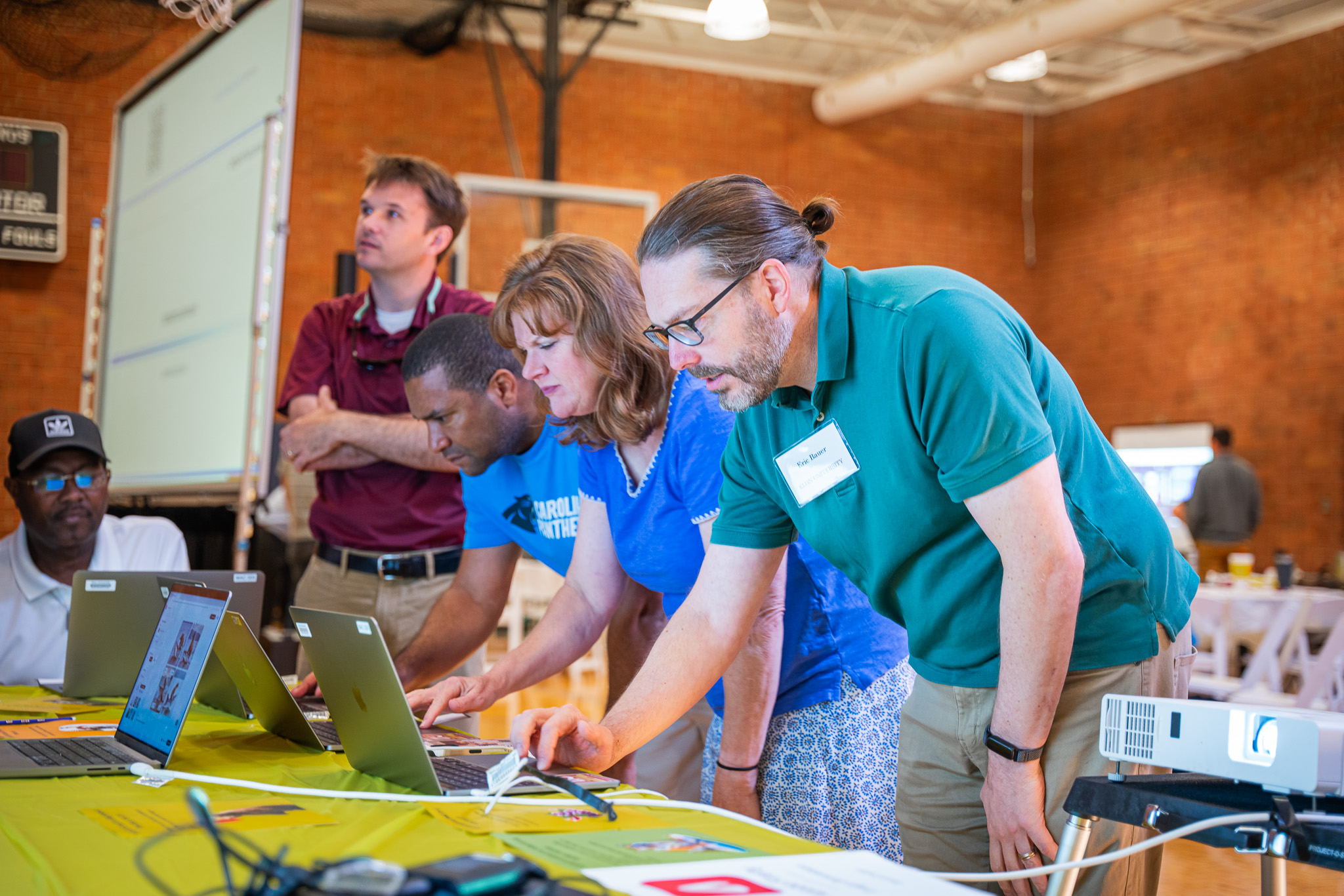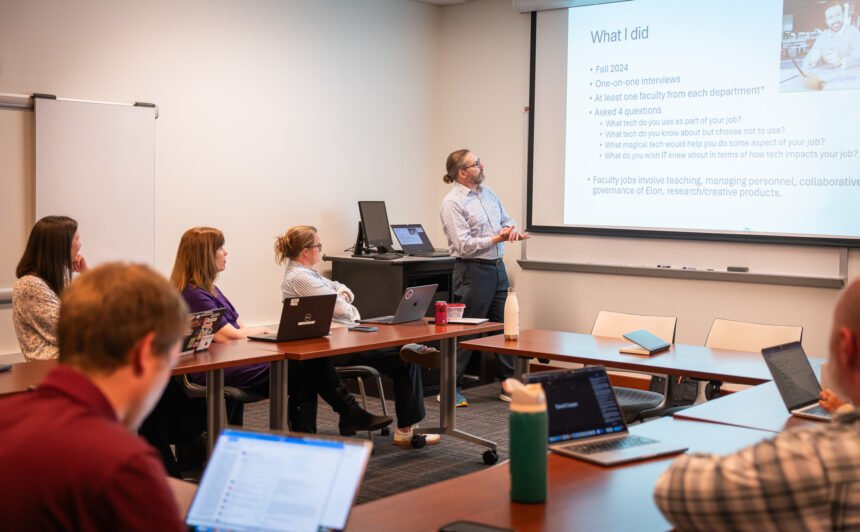As faculty fellow for technology, Eric Bauer is using one-on-one faculty interviews to surface real teaching needs and help bridge the gap between academic experience and campus technology strategy.
Share:
Understanding how technology supports teaching starts with understanding the people who use it.
That’s been the focus of Eric Bauer’s first year as faculty fellow for technology: listening to faculty, amplifying their perspectives and helping align IT services with academic needs.
An assistant professor of biology, Bauer stepped into the three-year faculty fellowship in August 2024. He serves as a liaison between faculty and the Office of Information Technology (IT), offering insight into how technology can enhance teaching, learning and student success.
“Faculty and IT bring different strengths to the table, but we’re working toward the same goal: supporting students,” Bauer said. “This role has helped me see the overlap and find new ways to collaborate more intentionally.”
Since his appointment, Bauer has conducted over two dozen one-on-one interviews with faculty in Elon College, the College of Arts and Sciences. His goal: understand how instructors are using technology, where challenges emerge and how IT can better support their work. He’s now expanding those conversations to include the Schools of Communications, Martha and Spencer Love School of Business, Dr. Jo Watts Williams School of Education, and the School of Health Sciences, creating a broader picture of instructional technology across campus.
“The goal isn’t to offer immediate answers,” Bauer said. “It’s about surfacing perspectives that can help IT better understand where technology is meeting faculty needs and where there’s room to grow.”
A focus on student learning and emerging technology
While faculty conversations remain at the heart of Bauer’s work, he’s also exploring how emerging tools—particularly AI—can extend academic support for students.
He is in the early stages of collaborating with Learning Assistance, investigating how technologies like generative AI could help students build foundational skills like time management, study strategies and information literacy.

“I’ve seen how much students struggle with basic academic habits, especially in their first year,” Bauer said. “If we can use tools like AI to help them strengthen those habits early on, it could have a real impact on their academic experience.”
Bauer is also in conversation with Teaching and Learning Technologies (TLT) and other IT teams about the evolving role of AI in platforms like Moodle 4.5. While Teaching and Learning Technologies has chosen not to enable Moodle’s generative AI features at this time, Bauer sees value in how TLT is taking a thoughtful approach to ensure alignment with Elon’s AI Principles.
His exploration of generative AI aligns with this intentional approach, as he seeks to better understand which tools support learning and where guidance can help faculty integrate them mindfully.
As with all of his work, the focus is not on chasing new tools, but on identifying which technologies solve real problems and align with Elon’s values and teaching goals.
A connector between faculty and IT
Bauer’s experience as an educator and researcher informs his approach to the fellowship, as does his prior use of instructional technologies such as 3D printing, Microsoft 365 and adaptive testing platforms.
Through his role, he’s gained a deeper appreciation for the scope of IT’s work and what goes into maintaining the digital infrastructure that faculty rely on every day.
The scale and complexity of IT work has been eye-opening. Most faculty only interact with tools like Moodle or Microsoft Teams, but there’s an entire infrastructure running behind the scenes. Learning more about that has deepened my appreciation for the role IT plays in our work.
Eric Bauer, assistant professor of biology and faculty fellow for technology
“Eric brings a grounding perspective,” said Kelly Reimer, senior director of teaching and learning technologies. “He asks the kinds of questions that connect tools to real teaching challenges. That’s what we were looking for: someone who could help bridge strategy with everyday practice.”
That bridge works both ways. Bauer is helping IT teams understand faculty workflows and needs while helping faculty better understand how IT systems are built, maintained and rolled out across campus.
Looking ahead
Bauer joins a line of previous faculty fellows for technology, including Kyle Altman, associate professor of physics, who helped lead Elon’s transition to hybrid teaching during the COVID-19 pandemic. Other former fellows include:
- Todd Lee, professor of mathematics;
- Antonio Izzo, associate professor of biology
- Randy Piland, senior lecturer in communication design.
Moving forward, Bauer will continue his outreach across academic schools, contribute to professional development programming, and support conversations around responsible, student-centered technology use.
“There’s a genuine sense of collaboration across IT teams,” Bauer said. “They’ve been incredibly welcoming and open to conversation. I’m excited to keep learning—and to keep building connections that help us all do our work more effectively.”
Faculty members who are interested in connecting with Bauer about classroom technology, digital tools, or instructional support are encouraged to reach out to him. He welcomes conversations with colleagues from all disciplines and perspectives.











